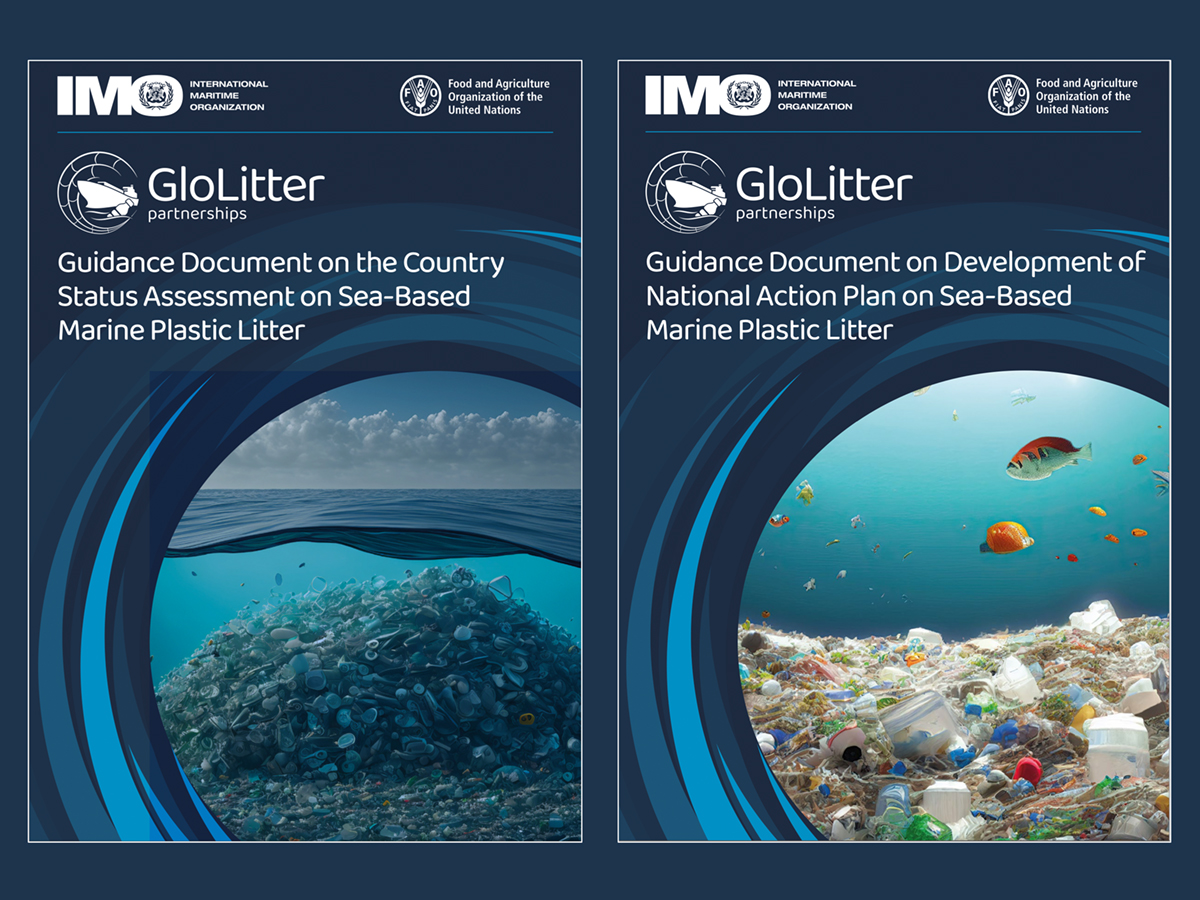The latest guidance on national planning and implementation issued by the GloLitter Partnerships project has been published. The two newly launched guides are designed to help countries in their efforts to prevent and reduce sea-based marine plastic litter (SBMPL).
The Guidance Document on the Country Status Assessment on SBMPL focuses on how to prepare a detailed Country Status Assessment on marine plastic litter. The guide includes an overview of the international legislative frameworks that prevent and reduce SBMPL from ships and wastes as defined by MARPOL Annex V and the London Convention/Protocol (LC/LP), as well as the relevant Food and Agriculture Organization (FAO) codes and guidelines. The FAO - a specialized agency of the United Nations that leads international efforts to defeat hunger - is a GloLitter Joint Implementing Partner.
Advice on how to prepare a National Action Plan (NAP) to reduce and prevent marine plastic litter is contained in the Guidance Document on Development of National Action Plan on SBMPL. The document is designed to help a country prepare an NAP tailored to its circumstances by addressing gaps, priorities and needs to better prevent and reduce MPL from the maritime and fisheries sectors identified in the Country Status Assessment.
The GloLitter Partnerships is a project between the Government of Norway, IMO and FAO aiming to reduce marine litter. The global project supports developing countries, including Small Islands Developing States (SIDS) and Least Developed Countries (LDCs), in identifying opportunities for the prevention and reduction of marine litter.
